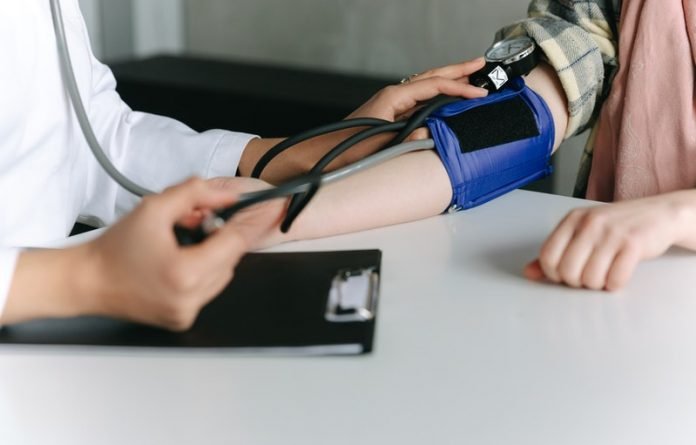
In a recent study from The University of Toledo, scientists found gut bacteria can reduce the effectiveness of certain blood pressure drugs.
High blood pressure is often called a silent killer because it doesn’t usually cause symptoms.
However, there is a big population of individuals who know they have hypertension but still cannot get it under control, even though they’re taking blood pressure drugs.
Among those with high blood pressure, an estimated 20% have what’s known as resistant hypertension, meaning their blood pressure remains high despite aggressive treatment.
In recent years, researchers have more intently examined the link between an individual’s blood pressure readings and the unique collection of bacteria that lives in their gut.
That work has helped to unravel potential causes of hypertension that extend beyond diet and exercise. However, this study is the first to examine the impact of gut bacteria on blood pressure medication itself.
In the study, the scientists compared the effectiveness of the blood pressure drug quinapril in rats with normal gut bacteria against those whose gut microbiota had been depleted by high doses of antibiotics.
Researchers found a clear difference between the two, with animals that were given antibiotics first responding much better to quinapril.
Analysis of the gut bacteria composition in the animals identified the bacteria Coprococcus as the culprit.
Laboratory experiments proved that Coprococcus comes, a dominant bacteria species in this genus can break down quinapril and ramipril, resulting in the compromised blood-pressure-lowering effects.
While the study was limited to animal models and lab experiments, researchers identified at least one intriguing case study that seems to bolster the argument that this finding could be applicable to humans.
A previous study described a woman with a long history of treatment-resistant hypertension whose blood pressure was controlled without any antihypertensive medication for the two weeks she was taking antibiotics for post-surgical infection.
Her blood pressure was able to be controlled with only one medication for six months after stopping antibiotics before again becoming treatment-resistant.
This suggests that gut bacteria can play a very real and very important role in regulating the efficacy of blood pressure medication.
If you care about blood pressure, please read studies about pain medicine that could reduce high blood pressure, and tea compounds could reduce your blood pressure.
For more information about blood pressure, please see recent studies that whole grain could benefit your blood pressure, blood sugar, and scientists give new advice for treating high blood pressure.
The research is published in the journal Hypertension and was conducted by Dr. Tao Yang et al.
Copyright © 2022 Knowridge Science Report. All rights reserved.



